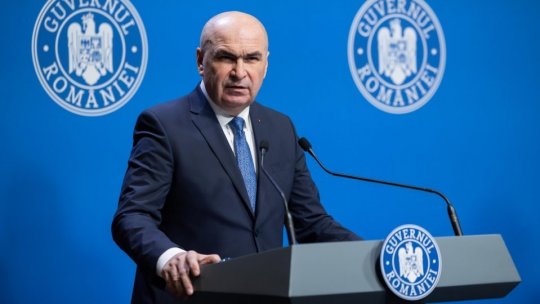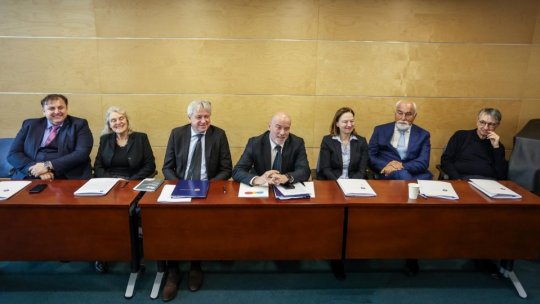The Parliament adopted a declaration on equal opportunities in Romania

Articol de Florin Lepădatu, 12 Decembrie 2022, 19:13
RADIO ROMANIA NEWS - Parliament adopted on Monday a declaration on equal opportunities in Romania, by which political and institutional actors are urged to contribute to the significant improvement of women's participation in all fields of activity and at all decision-making levels. Initiatives to establish a chance representation quota on candidate lists for local, legislative and European parliamentary elections are also welcomed.
RRA reporter, Iulia Gherman, transmits: "The Parliament's declaration on equal opportunities in Romania was adopted with 235 votes in favor, 24 against and five abstentions. AUR representatives were the only ones who opposed. Senator Claudiu Tarziu said that the document has no legal impact, and promotion in economic, social and political activities should be based only on the principle of meritocracy."
Claudiu Tarziu: "Equality between men and women in Romania exists. We have fellow parliamentarians, in the position of mayor. Who's stopping you ladies from holding office on merit? Meritocracy must dictate, not ideology.”
On the other hand, the acting president of the Senate, Alina Gorghiu PNL, emphasized that the Parliament's statement aims to change for the better the position of women in Romanian society.
Alina Gorghiu: "More women in the decision-making process, fewer wars. In the economic field, with more women on the labor market the pluses are obvious, says the OECD, it creates additional jobs, generates an increase in productivity and, ultimately, means an increase in GDP."
The text of the declaration recognizes the need to adopt and implement legislation to eliminate gender inequalities and promote equal access to mandates of political representation or professional responsibilities and leadership positions. The document also condemns all forms of gender inequality, such as violence against women, early and forced marriage, lack of equity in employment and the application of differential pay between women and men, or unequal participation in private and public decision-making.
Translated by: Radu Matei













